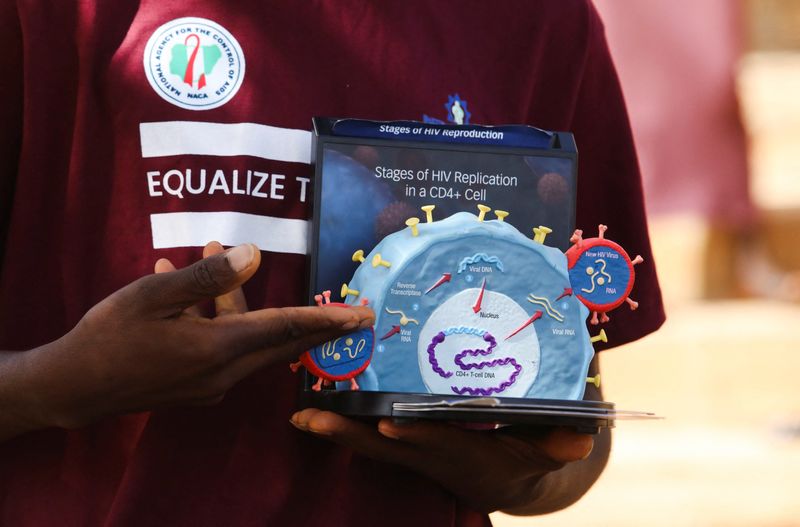
New HIV prevention drug could reach poorest countries by 2025, says health official
By Jennifer Rigby
LONDON (Reuters) – A new long-acting preventive HIV drug could reach the world’s poorest countries by the end of 2025 or early 2026, a global health official told Reuters on Tuesday.
The ambition is to start deliveries of Gilead Sciences’ lenacapavir on that timeline, said Hui Yang, head of supply operations at the Global Fund to Fight AIDS, Tuberculosis and Malaria. However, she said a lot of things need to happen first, including the injectable drug receiving regulatory approvals from authorities like the United States Food and Drug Administration and the World Health Organization.
Lenacapavir is already approved for use as a treatment for multi-drug resistant HIV, costing around $42,250 for the first year of therapy in the United States. Clinical trials this year showed it is also very effective at preventing infection and Gilead is seeking approvals for the new use globally.
“We don’t want…low and low-middle income countries to wait, to be at the back of the line,” when these approvals come in, said Yang, an equality issue that has plagued the fight against HIV for decades.
To avoid this, the Global Fund said on Tuesday it would join forces with the United States President’s Emergency Plan for AIDS Relief (PEPFAR), with funding from the Children’s Investment Fund Foundation and the Bill and Melinda Gates Foundation, to support affordable access to the pricey drug in countries they work with “from day one”.
The groups did not provide further details on how this may work, other than saying they aimed to reach at least two million people over three years.
Gilead signed deals in October this year with six generic drugmakers to make and sell lenacapavir more cheaply in 120 low and middle-income countries. The move was criticized for leaving out countries, especially in Latin America.
No deal has yet been signed with Gilead or any of these generic producers, Yang said, but they will work with all the companies involved.
Gilead Sciences (NASDAQ:GILD) did not immediately respond to a request for comment.

